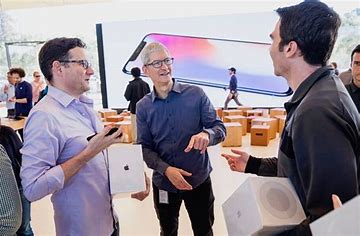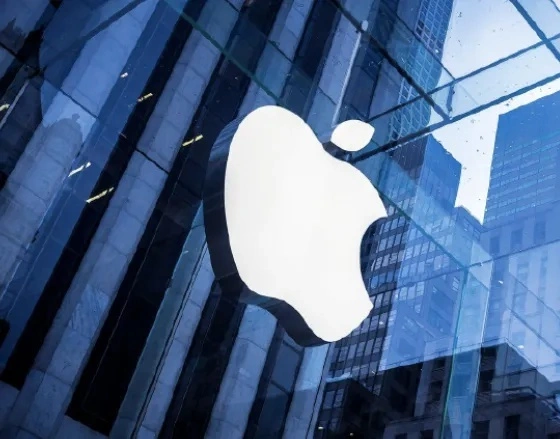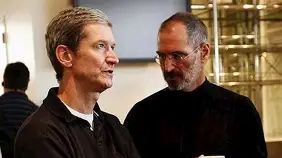The outside world generally believes that under Cook's leadership, Apple's innovation has been lackluster, merely patching up what was established by Jobs. However, a deeper analysis of Cook's product strategy reveals that he has actually pioneered a different path of innovation from Jobs—one that focuses not on disruptive breakthroughs, but on systematically improving Apple's product ecosystem. In the hardware sector, Cook has broken many of the "dogmas" from the Jobs era. Jobs insisted that 3.5 inches was the golden size for smartphones, believing that "no one would buy a large-screen phone." Cook boldly launched the 4.7-inch iPhone 6 and the 5.5-inch iPhone 6 Plus, resulting in record sales, with quarterly sales surpassing 75 million units, effectively suppressing the large-screen offensive from Android manufacturers like Samsung. Similarly, in the tablet market, Cook not only retained the 9.7-inch iPad but also introduced the 7.9-inch iPad mini and the 12.9-inch iPad Pro, creating a complete product matrix to meet different user needs.

Cook also led the expansion of Apple's product categories. In 2014, Apple acquired Beats for $3 billion, entering the high-end headphone market, and subsequently launched AirPods, creating the true wireless earphone category. In 2015, the Apple Watch was released; although it faced skepticism initially, through continuous iterations, it has become the leader in the smartwatch market, with shipments exceeding 50 million units in 2024. In 2023, Apple launched the mixed reality device Vision Pro, which, despite its high price, showcased the company's ambition in the field of spatial computing.
In terms of product innovation, Cook has adopted a pragmatic and incremental strategy. Unlike Jobs, who pursued perfection and was willing to delay releases, Cook prefers to launch "good enough" products on time and then continuously improve them through iterations. The initial performance of the Apple Watch was mediocre, but after several updates, it has become a benchmark in health monitoring; AirPods Pro further solidified its market position by adding noise-canceling features. This "rapid iteration" model allows Apple to maintain the competitiveness of its product lines continuously.
Cook has also done something that Jobs would never have done: launching relatively inexpensive models. Products like the iPhone SE series and iPad mini, although with lower profit margins, have successfully brought more users into the Apple ecosystem, providing a growth foundation for the services business. This "high-low pairing" product strategy enables Apple to cover a broader price range and resist competition from Android manufacturers. In software, Cook has promoted the popularization of the Swift programming language, lowering the barriers to iOS development; introduced the Apple Pay mobile payment system, expanding the boundaries of services; and developed the HealthKit and ResearchKit frameworks to lay out in the health sector. Although these initiatives are not as sensational as the iPhone launch, they lay the groundwork for the developer ecosystem and long-term competitiveness.
Cook's product philosophy can be summarized as: not pursuing to change the world every time, but ensuring that every product can improve the Apple ecosystem and serve specific user needs. This pragmatic attitude has led to Apple's product revenue growing from $108 billion in 2011 to over $300 billion in 2024, proving the effectiveness of his strategy.
As the wave of artificial intelligence technology sweeps the globe, Apple was once seen as a laggard. In an internal meeting in 2025, Cook candidly stated, "Apple must win the competition in the AI field, or it will fall behind its competitors." This marked the beginning of Apple's full-scale entry into the AI battlefield and showcased Cook's strategic thinking in response to technological changes. Cook's AI strategy reflects his consistent style of playing catch-up. He pointed out in the meeting, "We are rarely the first to enter the market. There were personal computers before the Mac; there were smartphones before the iPhone; there were many tablets before the iPad; there were MP3 players before the iPod. But that did not stop Apple from inventing the 'modern' versions of these products and ultimately dominating the market." This philosophy of "not being first, but being the best" is the core strategy for Cook's response to AI competition.
In terms of specific layout, Cook has adopted a three-pronged approach. First, strengthen independent technology research and development: by 2024, Apple has completed the acquisition of seven AI technology companies and is open to larger-scale acquisitions. Apple has also significantly increased its investment in AI research and development, planning to add 12,000 employees, 40% of whom will be dedicated to AI research and development. These measures aim to make up for Apple's lag in the field of generative AI. Second, build infrastructure advantages. Apple announced a partnership with Foxconn to create a 250,000 square foot AI server assembly plant in Houston, Texas, enhancing AI computing capabilities. At the same time, Apple is adopting a "hybrid strategy," expanding its own data centers while also utilizing third-party cloud services to support the computing power needs of AI applications. This flexible infrastructure layout provides assurance for the scalability of Apple's AI services.
Third, emphasize differentiated advantages. Cook stressed that "privacy-centric AI" is Apple's unique selling point, processing user data on-device to differentiate from competitors that rely on cloud processing. The next generation of iPhone will deeply integrate on-device AI computing power, using a "hybrid model" (device-side + private cloud) to balance performance and privacy. This privacy-first strategy aligns with Apple's consistent brand positioning and user expectations.
At the application level, Apple is advancing on multiple fronts. A comprehensive upgrade of Siri is a top priority; although the originally planned "personal assistant" version for 2025 has been delayed, Cook stated that progress is good. iOS 18/macOS 15 will open developer APIs for on-device AI models, allowing third-party applications to access Apple Intelligence capabilities. AI features such as image processing and intelligent summarization have also been gradually rolled out, although they still lag behind competitors. Cook has also laid out a strategy to reduce reliance on Google in the search field. As Apple's default search engine agreement with Google faces antitrust scrutiny, Apple has begun talks with AI search startup Perplexity, potentially integrating its technology into Safari to reduce dependence on Google. If successful, this move will significantly enhance Apple's voice in the information services sector.

Cook's success lies first in his redefinition of innovation. After Jobs' disruptive innovations, Cook has proven that sustained innovation is equally important. He no longer tries to change the world with a single product but has built an interdependent product service ecosystem, making Apple the center of users' digital lives. This systems thinking allows Apple to continuously create value without relying on the next "iPhone-level" breakthrough.
Secondly, Cook has demonstrated the art of balance. While maintaining Apple's high-end brand image, he has expanded the mid-range product line; while preserving the advantages of a closed ecosystem, he has moderately opened developer APIs; while adhering to privacy principles, he has actively embraced AI technology. This balancing ability enables Apple to cater to the needs of different stakeholders and move steadily in a complex environment. Third, Cook embodies pragmatic leadership. Unlike Jobs' "reality distortion field," Cook focuses more on data analysis and execution efficiency. He acknowledges that "Apple started late in the AI field," but is confident in catching up. This realistic attitude allows Apple to objectively assess its strengths and weaknesses and formulate practical development strategies.
Looking ahead, the challenges Cook faces remain immense. The AI race has just begun, new categories like Vision Pro still need market validation, and the global regulatory environment is becoming increasingly stringent. However, Cook has already proven that he can lead Apple to adapt to changes and continue to innovate. As he said after surpassing Jobs' record tenure, "Our story is still being written, and the best is yet to come." For this CEO, who has elevated operational efficiency to an art form, creating history may just be another milestone, not the end point.
